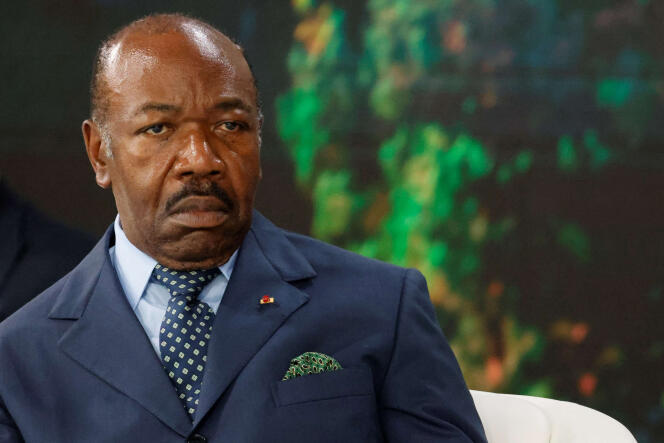


A closed election, without international observers or foreign journalists, is to be held in Gabon on Saturday, August 26. "It's a very bad omen for the credibility of this election," worried Jean Gaspard Ntoutoume Ayi, vice-president of the opposition Union Nationale. "The fact that journalists are not getting accreditation and that requests from various embassies are going unanswered proves that conditions are not ripe for a possible changeover." Ondimba, 64, has been in power for 14 years and is seeking a third term at the helm of this oil-rich country, considered to be one of Africa's richest.
The name of his main opponent was unveiled just eight days before the vote. Albert Ondo Ossa, 69, was nominated on Friday, August 18, by candidates who had joined the Alternance 2023 (A23) platform, set up to unite the opposition and avoid splitting the vote. The day after his nomination, Ossa launched his campaign at full speed across his country, which is half the geographical size of France and has a population of around two million. "The train of change is moving, our numbers will be our strength. I'm not afraid, don't be afraid," he stressed at his meetings.
The former Minister of Education and Higher Education (2006) under Omar Bongo Ondimba, father of the outgoing president, was chosen after tough negotiations involving several opposition leaders, including Alexandre Barro Chambrier (Rally for the Fatherland and Modernity party) and Paulette Missambo (National Union party). All the candidates on the A23 platform have pledged to withdraw their candidacy for the single-round ballot, for which there will be 13 candidates. "Albert Ondo Ossa is not the heavyweight we were expecting," admitted Jean Gaspard Ntoutoume Ayi. "We shouldn't see him as a candidate by default, but rather as the consensus candidate. A man of principle and values, he's the one who unites us the most and divides us the least."
But a change in the voting system is being debated. In July, the opposition criticized the government for introducing a single ballot for the presidential and legislative elections. In practice, a voter casting a ballot in the legislative elections for a party's candidate in their constituency will be obliged to vote for that party's presidential candidate, and vice versa. Appeals were lodged with the Constitutional Court to denounce the "non-separation of powers," but were unsuccessful. "This amendment violates voters' freedom of choice," complained François Ndong Obiang, a member of the A23 platform, as it "conceals a cunning way of enabling Ali Bongo to benefit from the votes of his party's candidates in the legislative elections."
As an independent, Ossa is not backed by any recognized political body and therefore has no legislative candidate on his ballot. His constituents will therefore not be giving their votes to any MP. The opposition candidate has already pledged to take legal action and dissolve the National Assembly if elected.
Today, the powerful Gabonese Democratic Party (PDG) and its allies rule almost unchallenged in parliament. First elected in 2009 following the death of his father, who ruled the country for more than four decades, Ali Bongo Ondimba was narrowly re-elected in 2016 with a relatively low turnout (59%), after a hotly contested election against Jean Ping. In particular, his result in Haut-Ogooué, the rural stronghold of his Teke community, raised serious doubts: turnout there was 99.93% and he won with 95% of the vote.
Ondimba finally won by 5,500 votes over Ping, after a fringe of the opposition rallied behind Ping just two weeks before the vote. The announcement of the results sparked off violence, with at least five people killed, according to the government, and around 30 according to the opposition. The National Assembly was set on fire.
With substantial financial resources, Ondimba, who suffered a stroke in October 2018 that left him physically hindered, has already been crisscrossing the country for several weeks as part of his campaign. "The record of his second term is one of failure," complained Mays Mouissi, economic analyst and author of a report on the action of the Gabonese government entitled "105 promises, 13 achievements." "Poverty and youth unemployment have risen, and living conditions have deteriorated. Compared to the last election, this time voters can accuse him of many mistakes, and the opposition can take advantage of this. But the conditions prevailing before the vote raise serious doubts about the transparency of the ballot."
Translation of an original article published in French on lemonde.fr; the publisher may only be liable for the French version.
